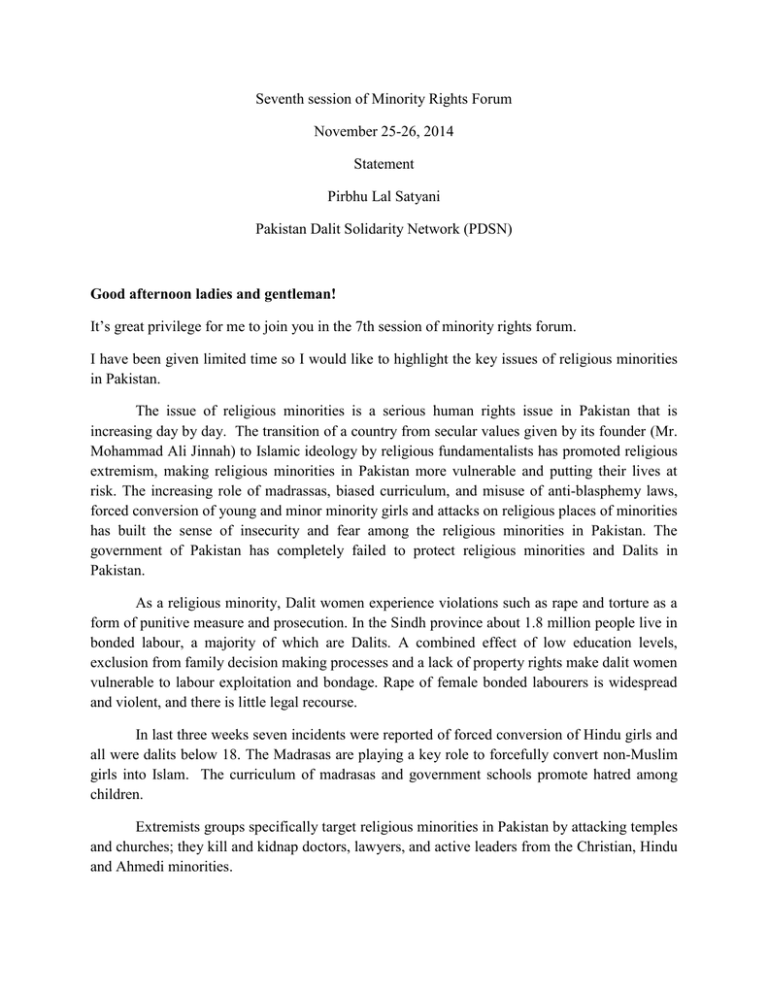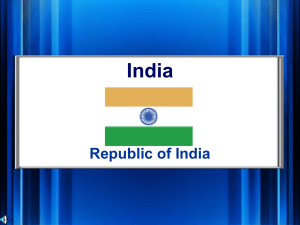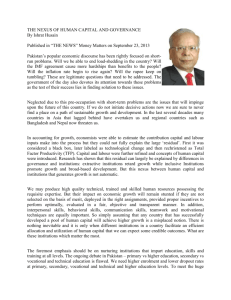Seventh session of Minority Rights Forum November 25
advertisement

Seventh session of Minority Rights Forum November 25-26, 2014 Statement Pirbhu Lal Satyani Pakistan Dalit Solidarity Network (PDSN) Good afternoon ladies and gentleman! It’s great privilege for me to join you in the 7th session of minority rights forum. I have been given limited time so I would like to highlight the key issues of religious minorities in Pakistan. The issue of religious minorities is a serious human rights issue in Pakistan that is increasing day by day. The transition of a country from secular values given by its founder (Mr. Mohammad Ali Jinnah) to Islamic ideology by religious fundamentalists has promoted religious extremism, making religious minorities in Pakistan more vulnerable and putting their lives at risk. The increasing role of madrassas, biased curriculum, and misuse of anti-blasphemy laws, forced conversion of young and minor minority girls and attacks on religious places of minorities has built the sense of insecurity and fear among the religious minorities in Pakistan. The government of Pakistan has completely failed to protect religious minorities and Dalits in Pakistan. As a religious minority, Dalit women experience violations such as rape and torture as a form of punitive measure and prosecution. In the Sindh province about 1.8 million people live in bonded labour, a majority of which are Dalits. A combined effect of low education levels, exclusion from family decision making processes and a lack of property rights make dalit women vulnerable to labour exploitation and bondage. Rape of female bonded labourers is widespread and violent, and there is little legal recourse. In last three weeks seven incidents were reported of forced conversion of Hindu girls and all were dalits below 18. The Madrasas are playing a key role to forcefully convert non-Muslim girls into Islam. The curriculum of madrasas and government schools promote hatred among children. Extremists groups specifically target religious minorities in Pakistan by attacking temples and churches; they kill and kidnap doctors, lawyers, and active leaders from the Christian, Hindu and Ahmedi minorities. The issue of religious minorities in Pakistan needs urgent attention to resolve it through multiple actions from the Government of Pakistan. Recommendations to the Government of Pakistan: 1. Separation between state and religion 2. Enforcement of the constitutional clauses that guarantee fundamental rights to the minorities. 3. Reformed curriculum 4. Strict implementation of laws against hate speech. 5. Enactment of a law to address forced faith conversation of girls from religious minorities. 6. Drafting and enactment of anti-discrimination legislation to protect minority communities with the consensus of respective groups. 7. Declare caste discrimination a crime. 8. Ban on un-registered and Dangerous madrassas Role of International community There is key role of international donor agencies in reforming the educational system and enforcing international human rights laws. The World Bank, IMF, Asian Development Bank, USAID and other UN agencies are investing billions of dollars in the education sector in Pakistan. These donor agencies need to impose conditions on the Government of Pakistan while investing the money in the country. All prejudice should be removed from the curriculum and it should be designed in a modern way, free of any religious bias. The United Nations need to push the Government of Pakistan to respect the UN treaties ratified by Pakistan and translate into the domestic legislation. Finally, we urge the Secretariat to specifically address violence and atrocity crimes targeted against Dalits in the recommendations and to explicitly mention and consider caste identities and caste-affected communities in the calls for particular focuses in approaches, policy and legislation. I thank you and look forward to our interactive exchange today and tomorrow.




